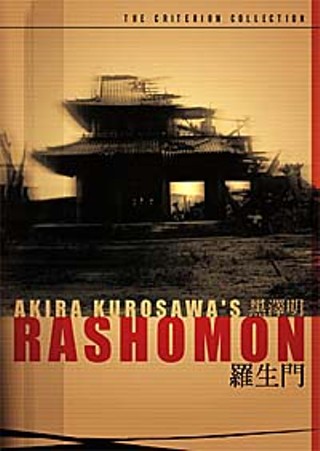Men With Guns
Plus swords, arrows, and armies, packing heat on dvd
By Kimberley Jones, Fri., June 7, 2002

RASHOMON
Criterion Collection ($39.95)
Before Rashomon, did anyone really question narrative credibility in film? What characters said, they meant. What happened onscreen, it had to have happened. That is, until Rashomon, Akira Kursoawa's 1950 breakout film, a deceptively simple tale of an ill-fated, forested encounter between a man, his wife, and a roving bandit. Their story is recounted by another trio -- a woodcutter, a priest, and a vagabond -- seeking shelter from a downpour, huddled together under the crumbling fortress Rashomon. The woodcutter speaks first: "I don't understand. I just don't understand." The confusion rests in what took place in the woods, and how the presumed good in human nature could go so bad. Wildly varying versions of the event are voiced; the only consistent element is that there is a dead body -- the husband's -- a body the wife and the bandit separately claim to have killed. Even the dead husband owns up to the offense, confessing his suicide through a medium in a ghoulish, chilling vignette. In the end, after so much debate, the truth is even more elusive, the viewer incensed to learn there is no tidy wrapping up, no murder mystery solved. Somebody's got to be lying, maybe even Kurosawa (who's to say even one of the four differing accounts is right?). It doesn't matter. While truth may be subjective, the historic import of Kurosawa's film is not: Rashomon is irrefutably one of the greats, launching the director's career into the stratosphere, further legitimizing the art film, and introducing innovative camera techniques. (In an intro on the disc, Robert Altman recalls marveling at Kurosawa and DP Kazuo Miyagawa's practice of pointing the camera directly at the sun, then cheekily admits to having copied the same trick for years.) The DVD features also include an erudite audio commentary from Japanese cinema scholar Donald Richie and excerpts from a documentary on Miyagawa. And, with signature stylishness, Criterion's liner notes are not only handsomely bound, but genuinely informative, packed with critical essays, Kurosawa reflections, and the original source material, two stories by Ryunosuke Akutagawa.








